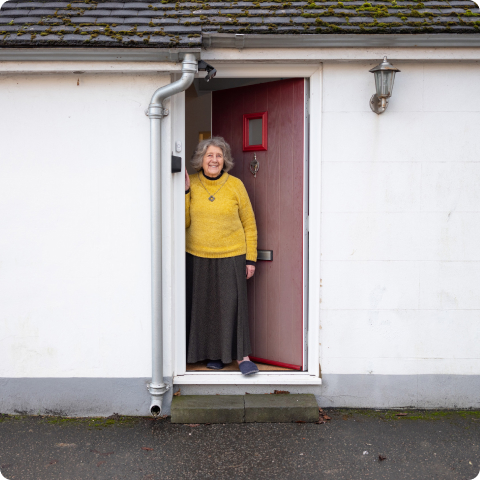Considering opting for live in care is a huge decision. No matter the individual’s age or health situation, the decision should not be taken lightly. It comes with a host of consequences, not just for the person involved but also for their family, friends and loved ones. It can, for example, either lead to or simply signify a loss of independence. It can also cause the individual to feel worried, especially if they are concerned about the risks of having someone they didn’t previously know in their home environment.
The good news is that there are some tips you can follow to ensure that live-in care is a success. From putting dignity first to using some psychological tools to ensure that everyone can accept the decision face-on, there are plenty of ways to help ensure that you get the live-in care system your loved one needs.
Put dignity first with live in home care
It’s vital to get off on the right foot when it comes to live-in care: negative experiences at the outset can have long-term consequences, especially if your loved one is older or is not quite accustomed to their loss of independence.

This can often be solved by ensuring that dignity prevails in all circumstances and situations. In practice, this means finding a live-in carer who is trained and experienced in sensitive areas, such as helping people go to the bathroom or get dressed. It requires a particular sort of care, and it’s not something every carer can do easily.
Dignity can also manifest itself in other ways. If it’s medically possible, your loved one can be involved in how their live-in care plan is unfolding. If they can contribute, they can be consulted on the company you might want to use or asked what sort of live-in care routine they might want. If possible, these are ways of establishing dignity and signalling to your loved one that live-in care will help empower rather than disempower them.
Choosing the right live in care company
Not all companies in the live-in care sector are equal, and you must do your research before you plunge into a contract with one. First off, you should read some reviews of the companies you plan to work with. By going to those who have hired the company in the past and seeing what they have had to say, you’ll be able to reduce the chances of choosing one of the bad apples that unfortunately do exist in this sector.
You should always ask questions. A good company will always be willing to work with you to give you the information you need, such as what levels of training the carers receive and whether they are paid a living wage. If you find that the company you might want to use cannot provide this information, you should consider taking your business elsewhere.


Live in care workplace culture
It may seem hard to believe, but the place where your loved one lives is about to become a workplace and a home. The carer who moves in will be there as a worker and a resident, so it’s vital to be sure that everyone’s rights are respected. That means ensuring that your loved one’s home is a safe and secure environment.
It also means that the carer you hire has their own space in the home, which they know is just for them. Because they’re going to be living in your loved one’s home, they need to have a place to go if they need a break or do something personal like calling their family. This may require a bit of creative thought, especially if your loved one lives in a home that is not large enough to support another resident, but it’s well worth the effort as it can pay off in terms of carer satisfaction and retention.
Using technology to improve the standards of live in care
For many people, the thought of a live-in carer is perhaps a little old fashioned. It can sometimes (wrongly) be equated to the idea of domestic help, for example, or can be written off as being behind the times. Nothing could be further from the truth. High-quality live-in care makes the most of technological innovation rather than shies away from it. That can be a significant advantage if you’re setting up a caring situation.
Using technology to improve the standards of live in care
For many people, the thought of a live-in carer is perhaps a little old fashioned. It can sometimes (wrongly) be equated to the idea of domestic help, for example, or can be written off as being behind the times. Nothing could be further from the truth. High-quality live-in care makes the most of technological innovation rather than shies away from it. That can be a significant advantage if you’re setting up a caring situation.
Companies in the live-in care space often use apps; these tools allow family members and friends of those being cared for to stay in touch and communicate with the carers looking after their loved ones. This, in turn, creates a bond of trust and reliability between the carer and those surrounding the patient.
Sometimes this can even include functions like photo sharing to allow all parties to know what everyone has been up to and that everything is okay. This can help everyone recognise the benefits of live-in care and reduce the risk that it will be construed as old fashioned, dangerous, or non-communicative.
Accept the decision – make live in care work for you
Finally, it’s also worth looking at the psychological side of deciding to hire live-in carers as being successful. It’s not uncommon for people who employ live-in carers to doubt the decision once it has been made. They might even sabotage the situation by not collaborating with their carer.
In this situation, it is worth working with your loved one’s carer to think up some strategies for helping your loved one accept the decision. It will likely happen organically over time, but it can often be relieved by creating an atmosphere of calm acceptance for all those involved. By showing your loved one that you have accepted the decision, you can model a way for them to conclude that the move is in their best interests.
Ultimately, it’s well worth exploring live-in care if you think your loved one needs it, and there are plenty of ways to ensure that it will be a success. It’s vital, for example, to make sure that you do your research into the sort of company to work with your loved one. If you choose one that embraces technology, has good reviews and is open about its policies and procedures, then the chances of the caring relationship being a success are higher. Similarly, it’s also worth putting in some time to ensure that you and your loved one have the psychological resilience to accept and embrace the decision over time. That can also help the caring get off the ground smoothly.
It’s simple to get started
Speak to our experts
Our care experts assess your loved one’s needs and together you design the support that’s right for you.
Get Lifted
We’ll match you with our Carers and get started. We’re here
to help every step of the way.


